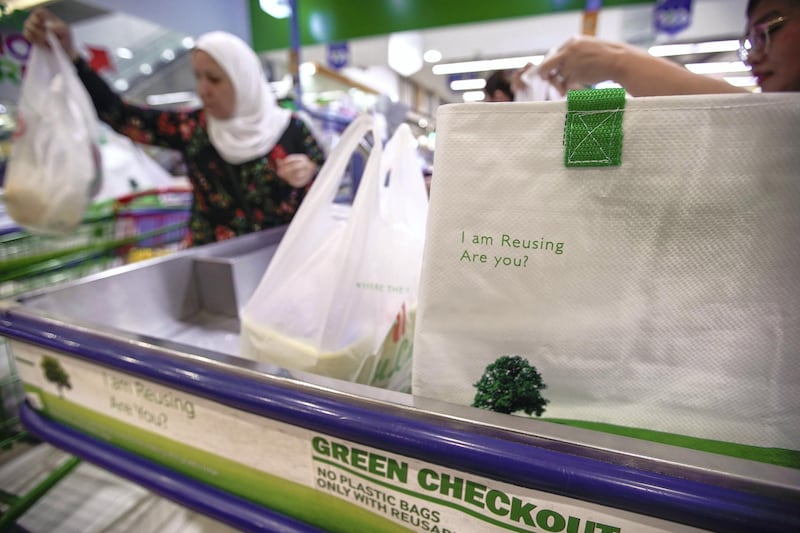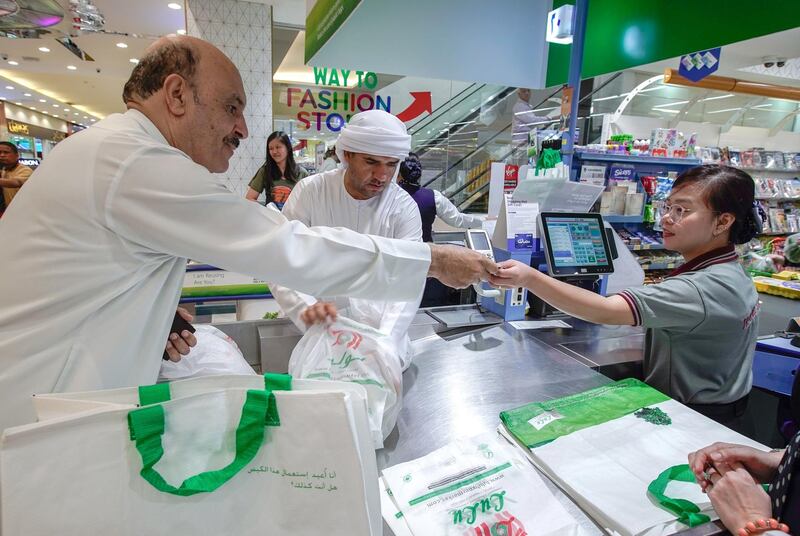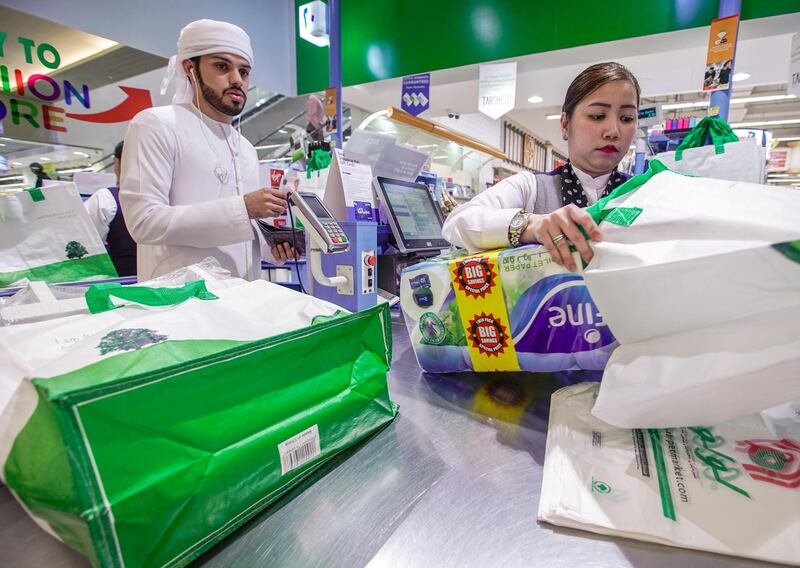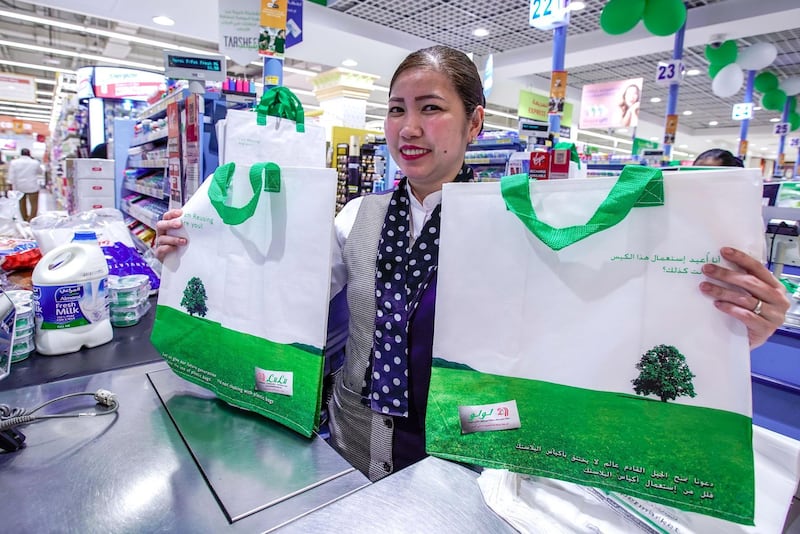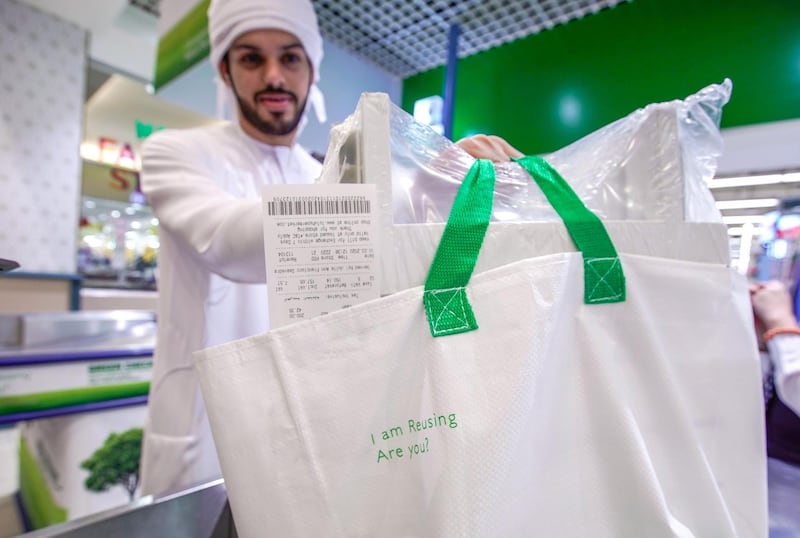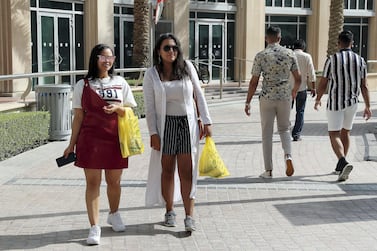Shoppers said they are on board with Abu Dhabi’s plan to phase out carrier bags - and that government action was needed to kick-start the effort to limit the use of disposable plastics.
Environment Agency - Abu Dhabi on Monday said there will be charges for disposable bags ahead of a ban within two years.
Among another 15 items to be targeted is plastic cutlery, disposable plates and plastic straws.
Supermarket customers said the move would make the public and retailers become more sustainable.
“Once it becomes a regulation, people will follow,” said May Al Amad, a Palestinian-Canadian pharmacist who was shopping at Lulu Hypermarket in Khalidiya Mall on Tuesday.
“The cashier lady just asked me if I want to buy the reusable bag. I have many at home but I forgot to bring any with me today,” she said, as an assistant placed her items in disposable plastic bags.
"When you live here your habits tend to change."
The 51-year-old said when she lived in the UK, she always used long-life bags. But she admitted going "with the flow" when she arrived in the UAE and had check-out assistants automatically bag-up her shopping in plastic.
People will have to get used to carrying their own bags around, “but it will eventually work out," she said.
Long-life plastic bags cost Dh2.5 at Lulu. Other supermarkets offer the same, while Spinney's sells heavy-duty brown paper bags for Dh.05.
Amr Shahawi, a 31-year-old engineer from Egypt, also left his reusable bags at home.
Residents embrace gradual plastics ban
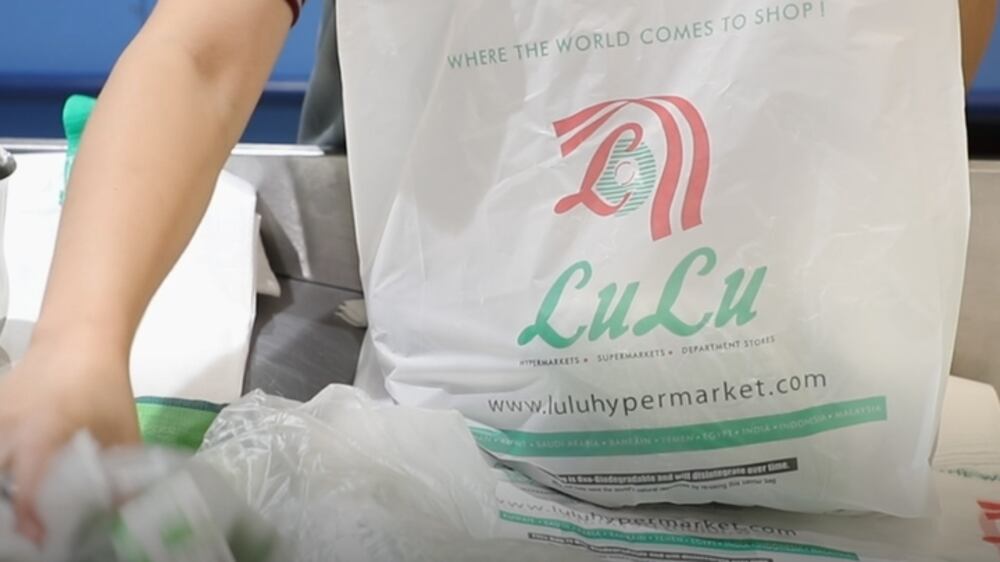
“By habit, we automatically get our items placed in the typical plastic bags,” he said, as the bag-packer placed everything he bought into multiple plastic bags.
“I like the reusable bag and tried it many times; I use it for other things too.
“We are all aware that plastic does not decompose and it is causing major problems to marine animals.”
He finds being given plastic cutlery - which takeaway restaurants often place in bags without asking - particularly frustrating.
Yusuf Ghadiyali, a quality manager for Lulu, said the chain began offering reusable bags five years ago, but kept disposable plastic carriers.
He admitted customers have been slow to adopt 'bag-for-life' options.
“We prioritise the reusable plastic bags’ holders at the Green Checkout counters," he said.
"But still customers are not convinced. We ask them at the counter if they would like to use the reusable bag and we promote it, but it is hard to change people’s minds.”
He said Abu Dhabi’s decision changes the game.
“Previously we could not place a fee on the plastic bags by ourselves - people would think we are charging to take advantage [of them]," he said.
“It is a very welcome move,” he said.
A young Emirati was one of the few spotted using reusable bags.
“I liked the look of the bag so I decided go for it,” said Rashid Awad, 25, who shopped with reusable bags when he studied in the United States.
“This is the first time I've used it here, and I believe it is more durable for the heavy items I just bought.”
He said it was not difficult to keep reusable bags in the car or home.
“In fact, I would feel more comfortable doing something that supports the country.”
On the counter next to Mr Awad, a middle-aged woman who was too busy to talk, pulled out four huge reusable bags from another supermarket and bagged up her own shopping.
As with other shoppers, Mr Awad wants to see an end to disposable plastic cutlery and carries his own cup and cutlery with him.
"With the health situation now, it is better to use your own personal items," he said.
